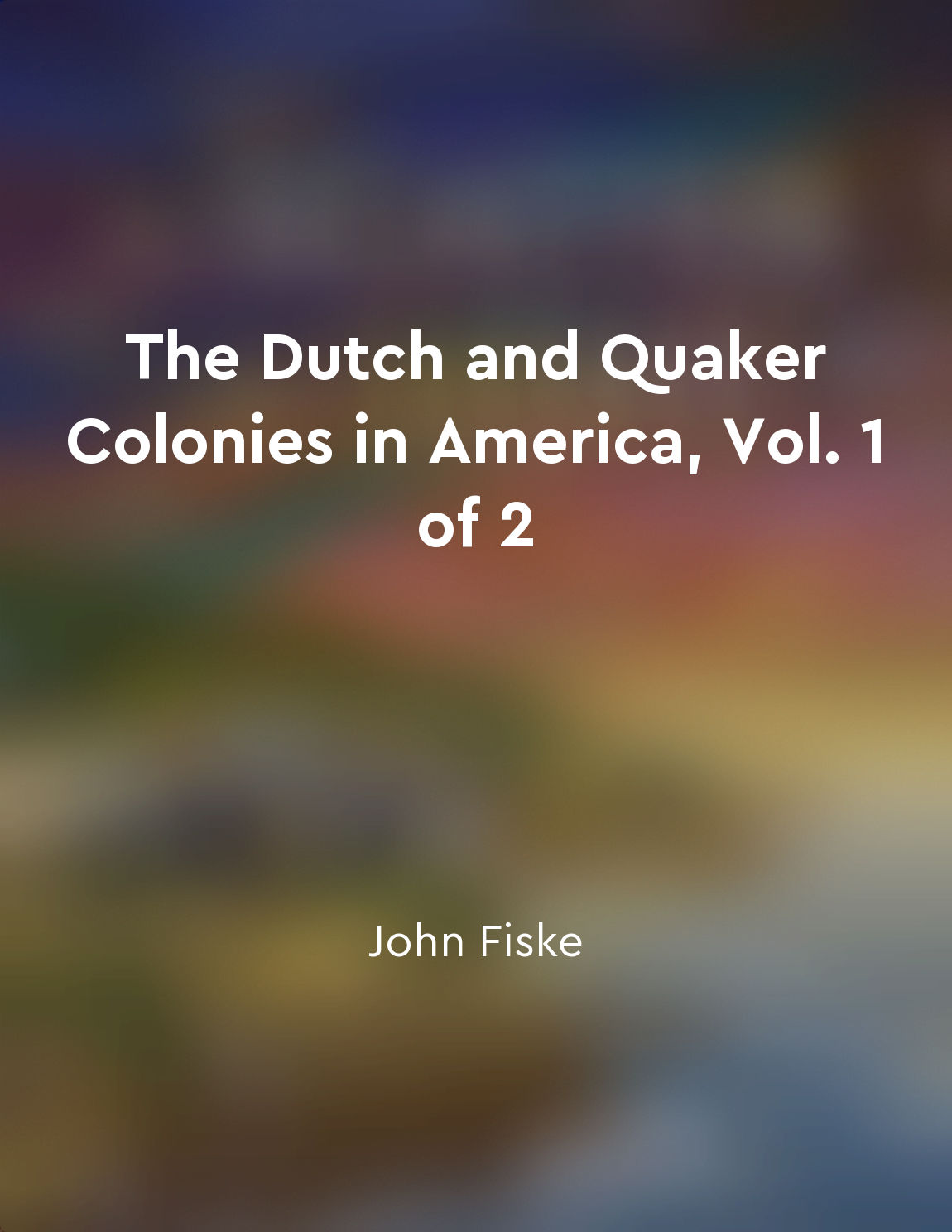Dutch and Quaker colonies reflected European social structures from "summary" of The Dutch and Quaker Colonies in America, Vol. 1 of 2 by John Fiske
The social structures of the Dutch and Quaker colonies in America were deeply influenced by European models. The Dutch colonies, for example, were organized along feudal lines, with a patroon system that mirrored the manorial system of feudal Europe. This system was characterized by large estates owned by wealthy patroons who controlled the labor of their tenants, creating a hierarchical society with clear divisions of wealth and power. Similarly, the Quaker colonies were founded on principles of religious tolerance and social equality, reflecting the democratic ideals of European Quaker communities. These colonies rejected traditional social hierarchies based on wealth or nobility, instead emphasizing the importance of individual liberty and community cooperation. This egalitarian ethos was evident in the Quaker practice of holding town meetings where all residents could participate in decision-making processes. In both the Dutch and Quaker colonies, social status was closely tied to land ownership. The Dutch patroons wielded significant power and influence through their control of large landholdings, while Quaker settlers in Pennsylvania were encouraged to establish small family farms and share in the collective ownership of communal lands. Land ownership was not only a source of economic security but also a symbol of social standing, shaping relationships and interactions within these societies. Furthermore, the social structures of the Dutch and Quaker colonies were shaped by their relationships with indigenous peoples. The Dutch engaged in trade and alliances with Native American tribes, incorporating elements of Native culture into their own society. Similarly, the Quakers sought to establish peaceful and respectful relations with Native peoples, rejecting the violent and exploitative practices of other European colonizers. These interactions influenced the development of social norms and values within the colonies, fostering a sense of multiculturalism and diversity.- The Dutch and Quaker colonies in America reflected European social structures in their organization, values, and relationships. From feudal hierarchies to democratic ideals, from land ownership to interactions with indigenous peoples, these colonies embodied and adapted European models to create distinct societies in the New World. The legacy of these social structures continues to shape American society today, highlighting the enduring impact of European colonization on the development of the United States.
Similar Posts
Transition to alternative energy sources is necessary for sustainability
Transitioning to alternative energy sources is essential for ensuring the long-term sustainability of human civilization. As we...

I emphasized the need for practical wisdom and humility
It is essential for one to possess practical wisdom and humility, as these qualities are crucial in navigating through life's c...

The rise of nationalism has posed a threat to global cooperation
The current surge in nationalism poses a significant threat to global cooperation. Nationalism, the belief that one's own natio...

The desire for recognition fuels inequality
The desire for recognition is a natural inclination that drives individuals to seek validation and respect from others. This de...

Quaker beliefs emphasized simplicity and equality
Quaker beliefs were characterized by a commitment to simplicity and equality. These principles were deeply ingrained in the Qua...

